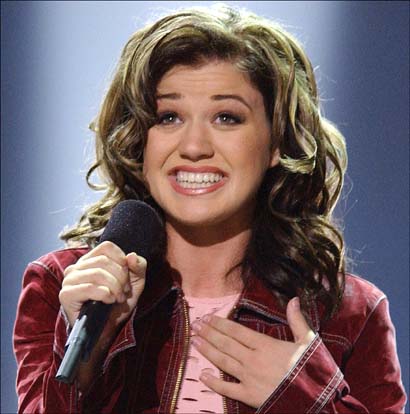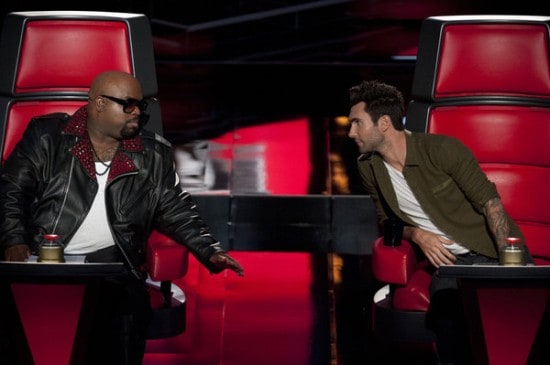 Today American Idol filled one of the vacant judge spots with superstar/singer Mariah Carey. I have a lot of gay male friends who will tune in to watch their diva critique the contestants. Two of the shows seats were recently vacated by Jennifer Lopez and Steven Tyler. Lately the judges from American and Idol and X Factor have been making the biggest splash in the news, hence the problematic trend with these shows, but I will get to this problem. The main problem is quantity vs. quality. When I talk about quantity with respect to reality television I am speaking to their need to try and "compete" and have the "next big thing" on the air.
Today American Idol filled one of the vacant judge spots with superstar/singer Mariah Carey. I have a lot of gay male friends who will tune in to watch their diva critique the contestants. Two of the shows seats were recently vacated by Jennifer Lopez and Steven Tyler. Lately the judges from American and Idol and X Factor have been making the biggest splash in the news, hence the problematic trend with these shows, but I will get to this problem. The main problem is quantity vs. quality. When I talk about quantity with respect to reality television I am speaking to their need to try and "compete" and have the "next big thing" on the air.At the moment I can name five reality competition programs about singing: American Idol, The Voice, X Factor, Duets, The Glee Project, and two shows that were cancelled, The Sing Off, Going Platinum. Five is not a large number, but is there something that makes each show unique? I have seen 3 of the five shows still on the air, I have avoided The Glee Project and Duets. I regularly watched American Idol during the first three seasons and after that on and off until Adam Lambert lost proving this show likes washed out white male guitar players. X Factor was Simon saying I want to go do my show I did in the UK on my own in the states, the show only had one unique factor asking, do you have the X Factor? What does that even mean? The Voice has swivel chairs and contestants are judged purely on their voice, until the judges see them and America votes. I can't comment on Duets but Glee's reality program seems to be in place to provide cheap talent for the regular series. This is the state of music competition programs today.
Let's go back to the beginning (in the States). Although the root of the first major series in this vein is an Australian/Brit combo. The original show in Australia was entitled Popstars, and soon after Nigel Lythgoe saw the series he brought it to Britain and renamed the show Pop Idol. The team on Nigel Lythgoe, Simon Fuller, and Simon Cowell combined their concepts and brought the show to United States where Rupert Murdoch's daughter convinced her father to buy the show; he did, it was renamed American Idol, and it debuted in the Summer of 2002.
One thing that hooked American audiences from the start was the panel, whom all were musicians or worked as producers, or choreographers. The first was often realistic Randy Jackson (still with the show) who was a member of Journey, and has played with Carlos Santana, and many other musicians. The next was the middle judge pop star from the 90s Paula Abdul whose positivity often seemed as though she was straight up high. Finally American audiences fell in love with the judge in the third seat Simon Cowell whose snark combined with his accent made him hard to hate with his blunt statements. Throw in some eager talented hopefuls eager to want to make it big, and some terrible singers thinking they could make it big. Then of course in the first season there was also the element of the host or well hosts playing nice between the contestants and the judges Ryan Seacrest and the forgotten Brian Dunkleman.
The show produced some, not many major stars within the music industry namely Kelly Clarkson, Carrie Underwood, Chris Daughtry, and Clay Aiken. These are top four selling artists from the show. When you look at past winners and even losers their album sales are pretty pitiful. Same thing can be said for the other winners/losers of the other reality series. Why continue to make these shows if the artists make no money/get dropped from their labels, the ratings keep slowly dipping, and the judges keep asking for more and more money?
 At the moment I would state my main gripe within this vein of reality competition programming centers on the focus on the celebrity judges. In a good reality show the judges are the main stays, they are the returning characters season after season, but they should not be the reason you watch a show. The contestants should matter just as much as the judges, they do not need to become as big as the judges, but the point of these shows like within The Voice is mentorship. Yet within The Voice and American Idol, and now this season of X Factor we are focused on Christina and Adam bickering, Mariah Carey being hired, and Britney Spears judging a singing competition (I am just as puzzled on that fact as many other people are). Then there are the hosts who are either bland, Carson Daly or stealing the spotlight themselves, Ryan Seacrest.
At the moment I would state my main gripe within this vein of reality competition programming centers on the focus on the celebrity judges. In a good reality show the judges are the main stays, they are the returning characters season after season, but they should not be the reason you watch a show. The contestants should matter just as much as the judges, they do not need to become as big as the judges, but the point of these shows like within The Voice is mentorship. Yet within The Voice and American Idol, and now this season of X Factor we are focused on Christina and Adam bickering, Mariah Carey being hired, and Britney Spears judging a singing competition (I am just as puzzled on that fact as many other people are). Then there are the hosts who are either bland, Carson Daly or stealing the spotlight themselves, Ryan Seacrest.These shows are grasping at straws. Duets marketing proved to try and state they did not need swivel chairs, they were different from all the other shows, and they had a former winner from one. What was the end result, from the word of others something cool in the beginning (like The Voice) that turned out to be the same as the rest of the shows in the end. Proving this genre needs more than a quick fix and a new judge or two. I have been sitting on these thoughts since I decided to watch and finish this season of The Voice. The show ended on such a low note where the winner's name escapes me, and the show flatlined from the fun originality. Maybe America is easily distracted by a spinning chair, and shows need more than then cheap gadgets to revive a genre. All signs point to yes.
No comments:
Post a Comment